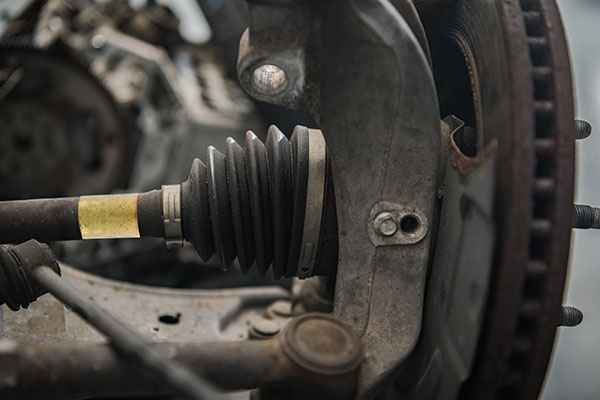
Is your vehicle's suspension a bit off? Wondering what component often requires repair? We most likely have the answer! Come along, and let's take a look at the most commonly repaired suspension component and how you can maintain it for smoother rides and improved handling.
Your Vehicle's Suspension
Before delving into the most commonly repaired component, it's essential to understand the role of the suspension system. Your vehicle's suspension comprises various components, including:
- Springs
- Shocks
- Struts
- Control arms
- Bushings
- Sway bars
Together, these components work to absorb shocks from the road, provide stability during cornering, and ensure a comfortable ride for passengers.
Identifying the Culprit - Ball Joints
One of the most commonly repaired components of a vehicle's suspension is the ball joint. Ball joints act as pivot points between the wheel hub assembly and the suspension system, allowing for smooth movement and steering control.
Over time, ball joints can wear out due to constant use, exposure to road debris, and lack of lubrication, leading to symptoms such as clunking noises, uneven tire wear, and compromised steering responsiveness.
Maintenance Tips for Ball Joints
To extend the lifespan of your vehicle's ball joints and prevent premature wear and tear, consider implementing the following maintenance tips:
Regular Inspections
Schedule regular inspections of your vehicle's suspension system, including the ball joints, during routine maintenance intervals or whenever you notice any signs of trouble. Catching issues early can prevent further damage and costly repairs down the road.
Keep It Lubricated
Ensure that the ball joints are adequately lubricated to reduce friction and wear. Use a high-quality grease recommended by your vehicle manufacturer and apply it to the ball joint fittings as needed.
Avoid Rough Terrain
Minimize exposure to rough terrain and potholes, as these can accelerate wear on the ball joints and other suspension components. Drive cautiously and avoid sudden impacts whenever possible.
Replace Worn Components
If you notice any signs of ball joint wear or damage, such as excessive play or looseness, have them replaced promptly by a qualified mechanic. Neglecting worn ball joints can compromise your vehicle's safety and lead to more extensive repairs.
You Might Ask About:
How can I tell if my vehicle's ball joints need replacing?
Make sure to keep an eye out for signs of damage on your car, such as clunking noises, uneven tire wear, and compromised steering. Additionally, schedule regular inspections during routine maintenance intervals.
Can I lubricate ball joints myself, or should I leave it to a professional?
While lubricating ball joints is relatively straightforward, it's essential to use the correct grease and apply it properly. If you're unsure, it's best to consult with a qualified mechanic to ensure it's done correctly.
Are there any aftermarket upgrades available to improve ball joint performance?
Yes, some aftermarket manufacturers offer upgraded ball joints with enhanced durability and performance. Be sure to research thoroughly and consult with a professional to ensure compatibility with your vehicle's suspension system.
Contact the Advanced Auto Care Center Florida team for expert suspension system maintenance and repairs!